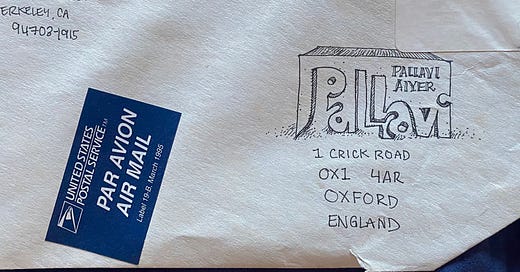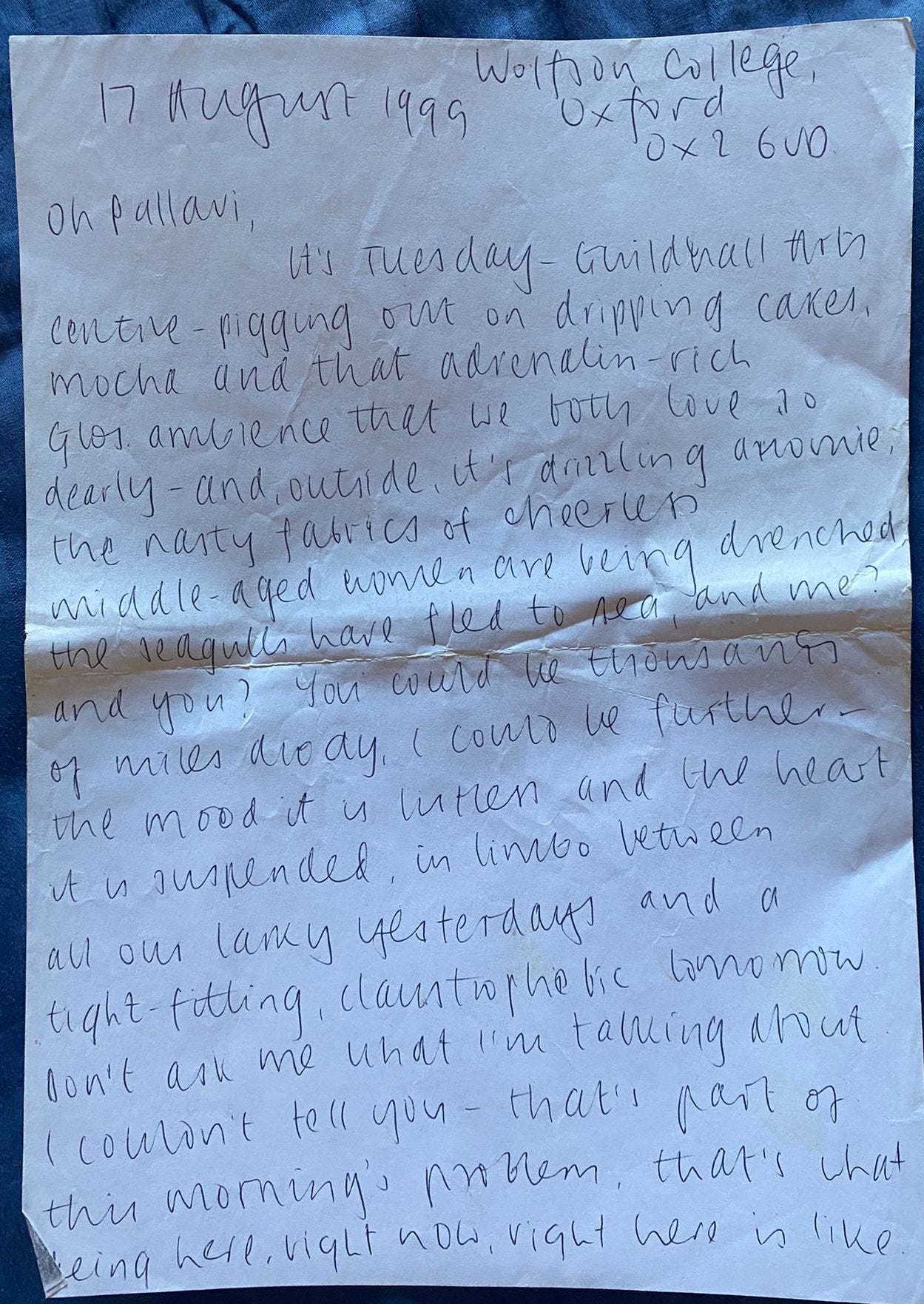In praise of the letter
In having lost letters we have lost the practice of introspection, the discipline of observation and the focus of mind that putting pen to paper inculcates
Dear Global Jigsawers,
I’m sure many of you would agree with me that today’s schools do a suboptimal job of teaching children to write by hand. The kind of spelling, punctuation and handwriting drills that comprised our primary school years are increasingly a thing of the past.
My boys go to a fancy, overly priced school, where they have been using laptops to turn in their assignments since Class 4. As you know, this trend towards the digital has only been exacerbated by COVID and online classes. In some ways, children today are certainly more advanced pedagogically than we were at their age.
Ishaan and Nico wield fearsome quantities of information on topics ranging from astrophysics to Roman mythology. In school, they are encouraged to read advanced texts and even to comprehend them.
And yet, they spell poorly, their handwriting has the aesthetic qualities of a squashed arachnid, and their punctuation is as capricious as a toddler’s dietary preferences.
I am aware, dear reader, that the Future of Work is important to keep in mind here. That education needs to move along with the times. Given that our kids will rarely, if ever, need to handwrite, and will almost always have spelling and grammar software shaping their output, perhaps their time at school is better utilized towards gaining skills not so easily replaceable by artificial intelligence.
Perhaps.
The reason for my hesitation isn’t some anachronistic attachment to difficult spelling (I’m sold on a better use of time than learning how to spell diarrhoea). It’s because in losing the art of writing, especially to each other, we lose the practice of introspection, the discipline of observation, and the focus of mind, that putting pen to paper inculcates.
The handwriting drills of our school days might not have directly encouraged analytical thinking. What they did do however, was to prepare us to become letter writers.
***
On a recent trip home to Delhi, I was confronted with bags full of my juvenilia and asked by my mom to sort through them or risk their disappearance into trash can-oblivion. I spent the next few days taking multiple journeys down memory lane as I waded through the aerogrammes, post cards and lengthy letters that an astonishing array of people had written to me.
I was awed by the oceans of words that had once been composed. For me. These ranged from missives from close friends to ones from people whom I barely knew in the corporeal sense.
A South African woman I once met in a bar in Köln while traveling through Europe in my late teens, wrote to me for a period of about four years after that one chance encounter. She described her travels around the world with verve and humour, and later spoke of her grief following the tragic death of her older brother (who I’d also met at that bar) in a freak car crash in Johannesburg.
I rediscovered a 25-page letter from a university friend in the UK, telling me about his sense of aimlessness upon graduating. I marveled at a letter from an eleven-year-old school friend who had moved from India to Alegria with her diplomat father. In it she mused about the ethics of writing to me on paper, given the ecological impact of the destruction of trees.
There was just so much detail, self-analysis, and care, in these epistles. They seemed to come from a wholly other dimension to the one my children and I inhabit today, in which we communicate with others through smiley faces and thumbs ups.
Moreover, the letters were tactile objects. Some were torn or stained with coffee spills. They bore the traces of their, often long, journeys. I could swear that some even gave off the scent of their writer. They were like little presents from the past to the future, holding within them the effort of the writer, the anticipation of the receiver, and the joyful patience of the entire process.
The knowledge of the passage of time between writing a letter and it being read was encapsulated by how many of the letter-writers located themselves in both space and time, at the time of writing: I am sitting in the college common room; I am in the café we used to go to; I can hear the subway rumbling outside.
****
And so, much as I am aware that my boys have advantages that I never did – both material and technological – I am also slightly sorry for their generation in the texture of experience they have lost, by having lost letters.
Do you agree, dear reader?
It is ironic that even as communication technologies have made it almost unimaginably easy to stay in touch with people across distance, people have in fact stopped communicating meaningfully.
I just asked my older son, to read this column and his reaction was to roll his eyes. Well, he’s going to be rolling his eyes a lot more in the coming weeks. I’ve decided to make him write a meaningful letter to anyone of his choosing. I suggest you get your kids to do the same.
Until next week,
With affection,
Pallavi Aiyar
PS: please do share this with friends, post comments in the section below and if possible , subscribe - its only the price of a monthly coffee :-)
This post was first published in Moneycontrol.com here:






Dear Pallavi - are you sure about the "losses"?
Personally, I write as much as before - by email as well as on Word, and then paper. With a PC and attendant services, my texts are better. First, spell-checkers force me to be precise, and concise. Also, writing on a PC allows me to check my false memories at once, discover historical events I knew nothing about, and more. I can quickly evoke the telling detail or discovery. At the same time, I can be short: no need for lengthy explanations when a link to Wikipedia or a photo will do.
Finally, an ever-clean and nicely formatted page is a pleasure to behold and a terrific de-stresser. Gone are the feelings of confusion and impotence when too many corrections, cancellations and write-overs leave one discouraged or despondent. (BTW: I am able to deal better with pentimentos - easier than picking up any of the various crumbled sheets on the floor or the waste paper basket).
Finally, I can keep records: since ages, I save my texts either in Word or on Gmail. In fact, were it all to be on paper support, the collection would be humongous, and due to my age, I cannot outsource the vetting to my mother - as you did.
All this comes at a price - true. The lack of paper support makes going down memory lane somewhat more difficult. But it is a personal matter: I rather look forward than dwell in regrets.
Collectively, however, we are the victims of hybris. We want to live in the now and in the past as well. That's Faust's dream - and you know where he ended. We better accept the fact that the past is a foreign country, and that there is a right and duty - nay necessity - to forgetting.
Writing on a mobile - possibly in the car - is a different matter altogether. But that's outside the classroom framework you set.
I do a lot of emailing - inevitable in this day and age - but I have never stopped handwriting letters as well. I have a collection of pens and ball pens, I use sepia-coloured Mont Blanc ink, my paper is always Royal Executive Bond and I buy special stamps from the philatelist department in our GPO. My friends tell me they always enjoy receiving my handwritten letters.